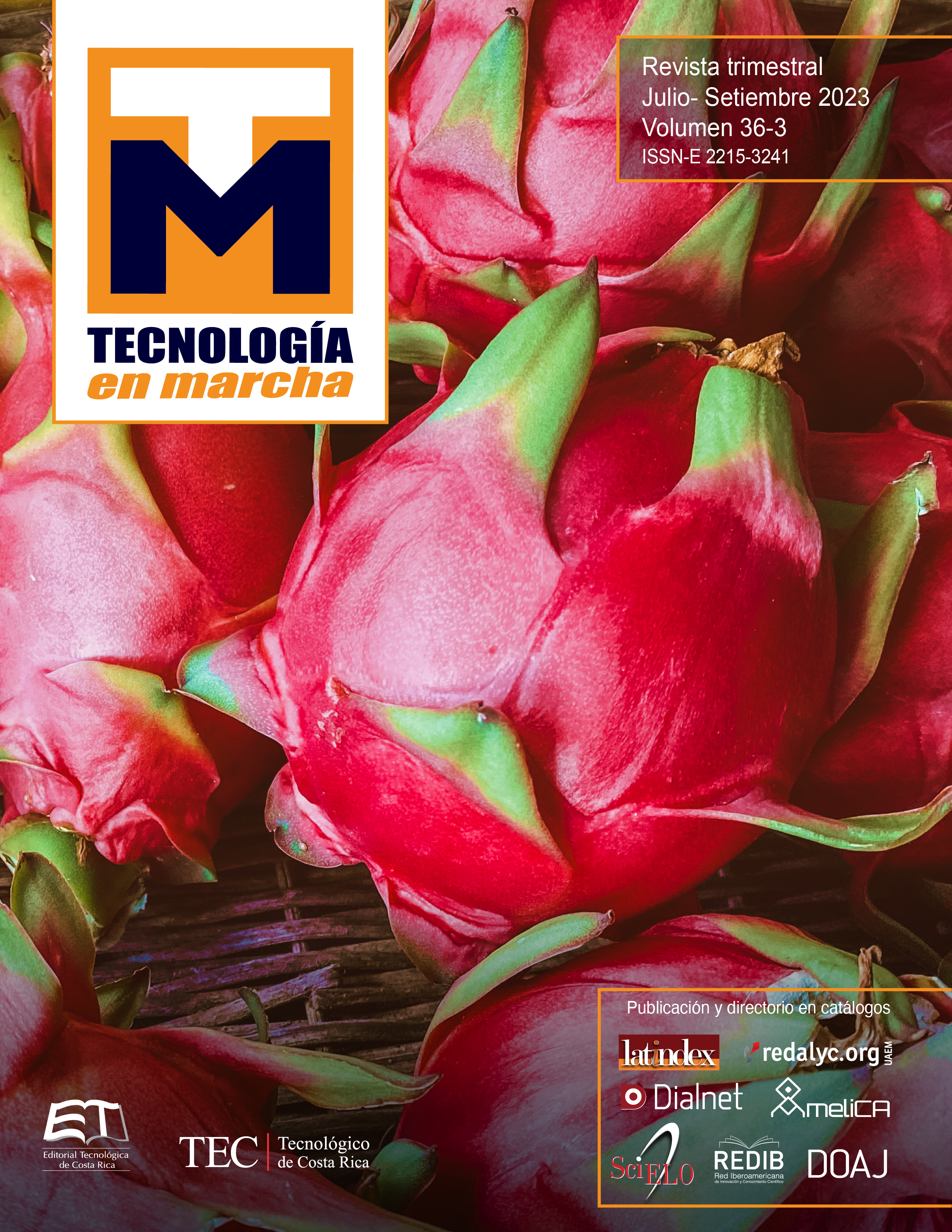Solid waste management strategy for the community of Colorado Norte, Pococí
Main Article Content
Abstract
The community of Colorado Norte, located in Pococí, does not have an integral waste management system. This article reports the steps followed to analyze the present situation of the community and proposes a solid waste management strategy that allows to have an improved system. In order to achieve the objectives of the study, the generation and composition of the solid waste were investigated. Interviews to community members were carried out in order to identify the main problems associated with the solid waste system. Four strategic objectives are proposed to improve the situation. They are: waste management at the source of generation, collection and transportation of solid waste, education, training and awareness, and strenghtening legal and administrative processes. It is concluded that the rate of waste generation in the community is 0.51 kg/inhabitant/day, the implementation of the collection service would have a cost of approximately 45,765.85 colones/per quarter/taxpayer (US$70). It is proposed that organic waste be disposed of on the land of the residents, and the rest collected door to door. The implementation of a system in the North Colorado community represents a great challenge due to the difficulties of access the area.
Article Details

This work is licensed under a Creative Commons Attribution-NonCommercial-NoDerivatives 4.0 International License.
Los autores conservan los derechos de autor y ceden a la revista el derecho de la primera publicación y pueda editarlo, reproducirlo, distribuirlo, exhibirlo y comunicarlo en el país y en el extranjero mediante medios impresos y electrónicos. Asimismo, asumen el compromiso sobre cualquier litigio o reclamación relacionada con derechos de propiedad intelectual, exonerando de responsabilidad a la Editorial Tecnológica de Costa Rica. Además, se establece que los autores pueden realizar otros acuerdos contractuales independientes y adicionales para la distribución no exclusiva de la versión del artículo publicado en esta revista (p. ej., incluirlo en un repositorio institucional o publicarlo en un libro) siempre que indiquen claramente que el trabajo se publicó por primera vez en esta revista.
References
Masís-Leandro, K. J. (2018). Centros municipales de recuperación de residuos sólidos valorizables en Costa Rica: situación actual y guía de buenas prácticas. https://repositoriotec.tec.ac.cr/handle/2238/10008
Anchía Leitón, D. (2018). Propuesta para el diseño de micro-rutas de recolección de residuos sólidos valorizables en el casco central comercial de la ciudad de San José. https://repositorio.una.ac.cr/handle/11056/14572
Consejo Nacional del Ambiente. (2017). Informe Estado del Ambiente Costa Rica 2017. https://odd.ucr.ac.cr/sites/default/files/IAE2017/00-Estado-del-Ambiente-ResumenEjecutivo-vf.pdf
Abarca-Guerrero, L., Maas, G., & Hogland, W. (2013). Solid waste management challenges for cities in developing countries. Waste Management Journal, 33, 220-232, http://dx.doi.org/10.1016/j.wasman.2012.09.008
Abarca, L. y Lobo, S. (2020). Análisis de mercado de los residuos sólidos ordinarios, sus subproductos y evaluación del costo-beneficio de las tecnologías disponibles en residuos valorizables que pueden dar una oportunidad de negocio. Deutsche Gesellschaft für Internationale Zusammenarbeit (GIZ) GmbH, San José, Costa Rica.
Constantin, F. (Ed.). (2017). Solid Waste Management in Rural Areas. http://dx.doi.org/10.5772/66551
Bernache Pérez, G. (2015) La gestión de los residuos sólidos: un reto para los gobiernos locales, Sociedad y Ambiente, (7). doi: 10.31840/sya.v0i7.1592.
Municipalidad de Pococí. (2015). Plan de Desarrollo Rural Territorial de Pococí 2015-2020. Recuperado de http://obturcaribe.ucr.ac.cr/documentos-publicaciones/planes-yprogramas-n/inder/192-pdrt-pococi/file
Shahmoradi, B. (2013). Collection of municipal solid waste in developing countries. En International Journal of Environmental Studies (Vol. 70, Número 6). https://doi.org/10.1080/00207233.2013.853407
Asamblea Legislativa de la República de Costa Rica. (2010). Ley para la Gestión Integral de Residuos, N°8839.
Ministerio de Salud. (2013). Decreto Ejecutivo N° 37745-S Oficializa la Metodología para Estudios de Generación y Composición de Residuos Sólidos Ordinarios. San José, Costa Rica.

